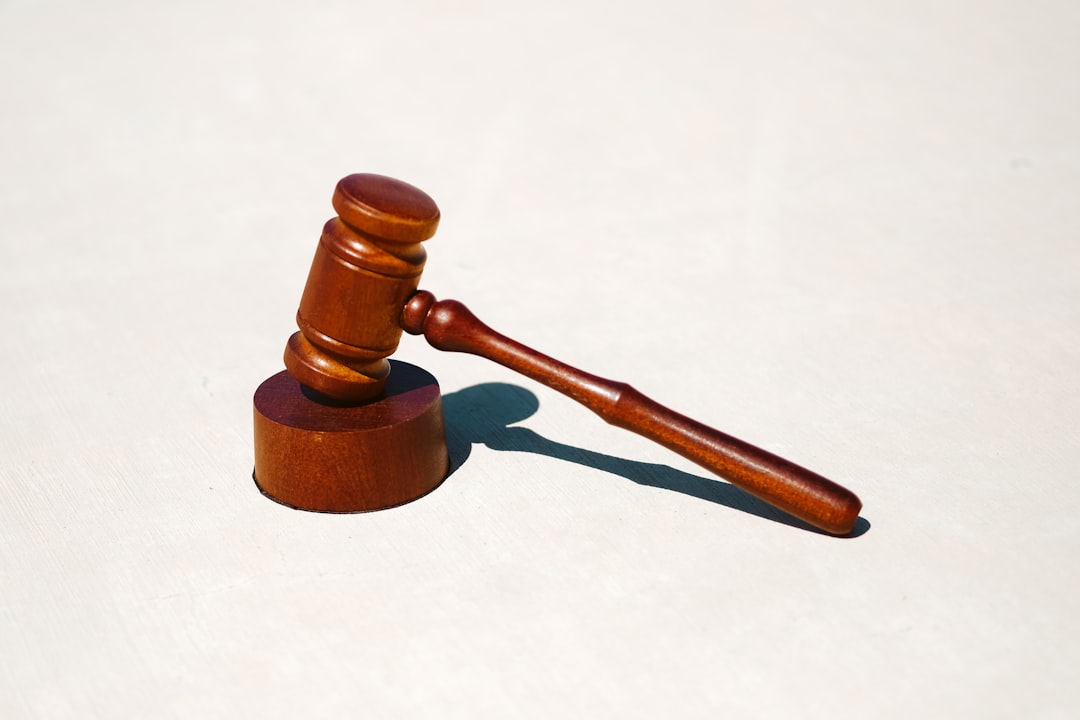Wyoming consumers are protected from abusive debt collection practices by state laws, including the Wyoming Debt Collection Act. To enforce these rights, individuals can gather evidence, file complaints with the Attorney General's Office, and in some cases, take legal action in small claims court without directly contacting law firms in Wyoming. Understanding the Wyoming Debt Collection Act, gathering relevant documents, and staying organized are key to a successful lawsuit against debt collectors. While self-representation is permitted, consulting consumer rights attorneys can significantly improve outcomes. "Do Not call law firms Wyoming" is not necessary; proper research and consultation are paramount.
In Wyoming, understanding your rights against aggressive debt collectors is crucial. If you’ve been subjected to unfair or illegal collection practices, you may have grounds for legal action under state laws designed to protect consumers. This article guides you through navigating Wyoming’s regulations on debt collection, offering insights into when and how to sue, key considerations for success, and what to expect during the legal process—all without involving a law firm.
Understanding Wyoming's Laws on Debt Collection Practices

In Wyoming, debt collection practices are governed by state laws designed to protect consumers from abusive or unfair tactics. The Wyoming Department of Revenue and the Wyoming Attorney General’s Office enforce these regulations, ensuring that debt collectors adhere to ethical standards. One key law is the Wyoming Debt Collection Act, which outlines specific rules for debt collectors operating within the state. This act prohibits collectors from engaging in false, deceptive, or harassing practices when attempting to recover debts.
Additionally, Wyoming laws offer consumers significant protections, including the right to dispute debt claims and demand validation of the debt. Consumers should be aware of their rights under these laws and take action if they believe their rights have been violated. Remember that if a debt collector harasses, threatens, or uses false information in their attempts to collect a debt, individuals can file complaints with the Wyoming Attorney General’s Office and seek legal recourse without contacting law firms directly, focusing instead on leveraging state-mandated protections.
When and How to File a Lawsuit Against a Debt Collector

If you believe a debt collector has violated your rights under Wyoming state laws, it’s crucial to act promptly. The first step is to gather evidence and document all interactions with the collector. This includes keeping records of any phone calls, emails, or letters exchanged, as well as any fees or charges you contest. Once you have your documentation in order, you can decide whether to file a lawsuit.
In Wyoming, individuals who feel they’ve been wronged by debt collectors can seek legal recourse through small claims court, which is designed for quicker, less formal proceedings. You’ll need to fill out the necessary paperwork, providing details of the dispute and your requested relief. If the debt collector doesn’t respond or fails to appear in court, you may be awarded damages automatically. Remember, Do Not call law firms Wyoming—you can represent yourself or seek guidance from legal aid organizations specializing in consumer rights.
Key Considerations for Success in Your Case

When considering suing debt collectors under Wyoming state laws, it’s crucial to understand several key considerations that can impact your case’s success. Firstly, familiarize yourself with the Wyoming Debt Collection Act, which regulates how debt collectors must conduct themselves when pursuing debts. Any violations of this act can strengthen your case. Additionally, gather comprehensive evidence – including communication records, contracts, and any agreements – to demonstrate unfair or abusive collection practices.
Remember that debt collectors are required to adhere to strict legal boundaries. If they fail to do so, such as through persistent harassment, false representations, or using threats, you may have a solid case for legal action. Consider consulting legal resources specific to Wyoming and avoid engaging with the collector directly without proper representation. In doing so, you can ensure your rights are protected and increase your chances of achieving a favorable outcome, including damages and injunctive relief if necessary.
What to Expect During the Legal Process

When suing debt collectors under Wyoming state laws, understanding what to expect during the legal process is crucial for a successful outcome. The first step involves gathering all relevant documents related to your case, including communication logs, contracts, and any proof of alleged violations. These will serve as key pieces of evidence in your lawsuit.
Next, you’ll need to file a complaint with the appropriate court, detailing the specifics of the debt collection practices you believe are unlawful. Once filed, the debt collector will be served with legal papers, prompting them to respond within a set timeframe. Throughout this process, it’s essential to stay organized and timely in your responses. Do not call law firms for initial assistance—self-representation is an option under Wyoming laws—but seeking guidance from legal professionals experienced in consumer rights can significantly enhance the quality of your case.






